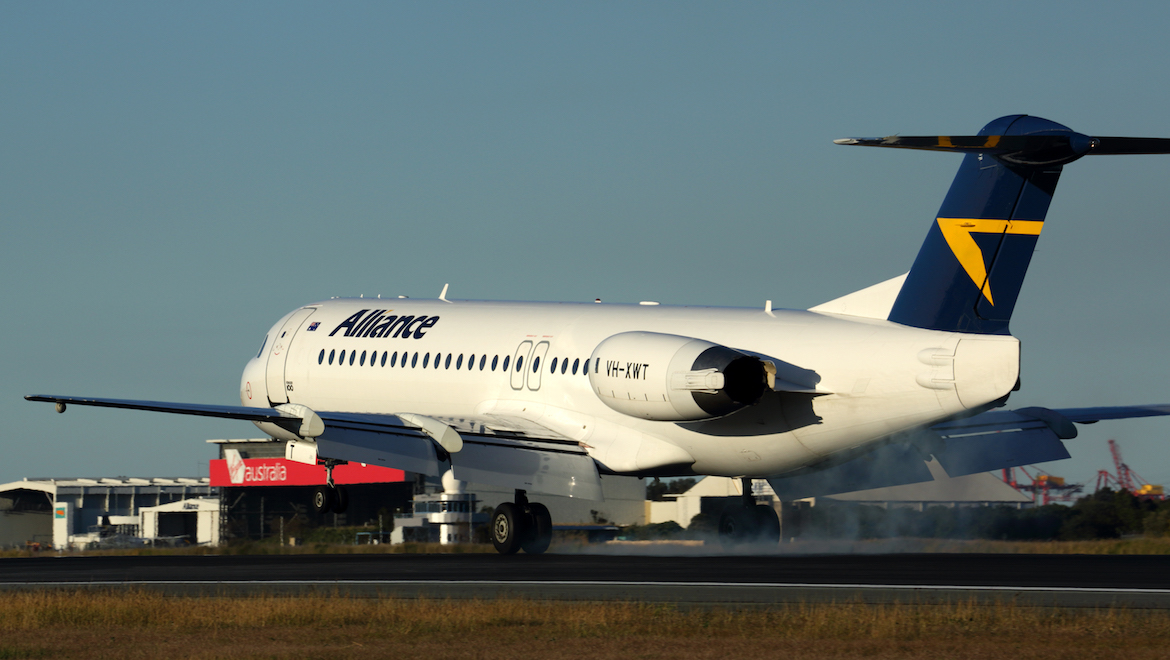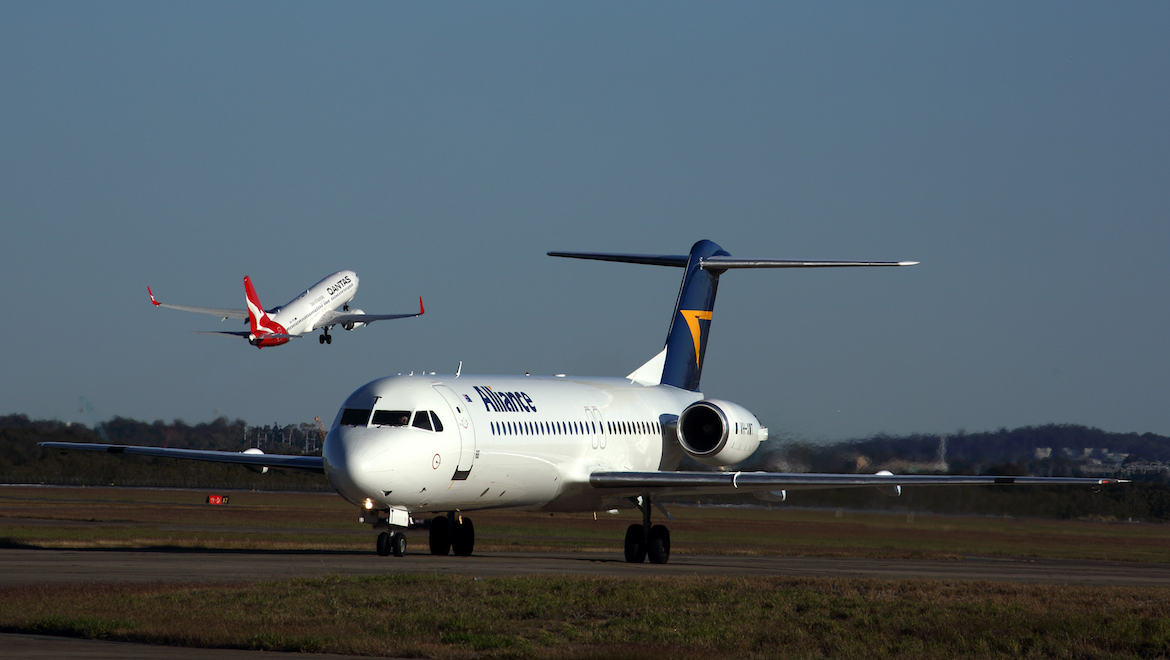
Alliance Aviation Services says it will operate flights on behalf of Virgin Australia until the end of 2021 under a new contract.
The company said in a regulatory filing to the Australian Securities Exchange (ASX) on Monday it had the expanded the current agreement with Virgin Australia.
The new contract covers wet lease flying, where Alliance supplies the aircraft and crew, on regional routes and the upcoming start of international flights between Brisbane and Port Moresby due to start on February 25.
Alliance chief executive chief executive Lee Schofield said the company was “delighted to extend our working relationship with the Virgin Australia Group” until 2021.
“This extension includes increased contracted flying hours and Alliance is excited by the opportunity to commence operating international services on behalf of the Virgin Australia Group,” Schofield said.
“Since the signing of our long-term strategic partnership with the Virgin Australia Group in August 2016 both parties have benefitted through the provision of a range of services including contracted wet lease services.”
Alliance commenced regular public transport (RPT) flights which are sold as Virgin Australia codeshare services in July 2017. The first three routes were from Brisbane to Bundaberg, Gladstone and Port Macquarie and served with Fokker 70 regional jets featuring 80 seats in a 2-3 layout with 33in pitch in an all-economy configuration
In January 2019, Virgin Australia said it would transfer its five times weekly Brisbane-Port Moresby nonstop service to Alliance.
The flights would be operated by Fokker 100s that have 100 seats pitched at 33 inches in an all-economy layout. By contrast, Virgin Australia’s Boeing 737-800s have 168 seats in economy class and eight in business class for a total of 176.
Figures from the Bureau of Infrastructure, Transport and Regional Economics (BITRE) showed the Australia-Papua New Guinea market has been a challenging one in terms of passenger numbers, with Virgin Australia’s average load factor for the 12 months to June 30 2018 was 35.2 per cent on its flights from Port Moresby to Brisbane and 36.3 per cent for Brisbane-Port Moresby.
Qantas’s load factor on the route over the same period was 65 per cent inbound and 57.1 per cent outbound, while Air Niugini’s services to Australia recorded load factors of 52.8 per cent and was 52.6 per cent on flights from Australia.
The wet lease flying is separate to a charter partnership that Alliance and Virgin Australia received Australian Competition and Consumer Commission (ACCC) approval for in 2017.
The tie-up allowed the pair to work together on joint tendering for corporate FIFO contracts, as well as cooperate on aircraft maintenance, procurement of aircraft and parts, parts pooling, airport operations, airport handling, check-in, frequent flyer programs, lounge access, scheduling, pricing, sales and marketing and service policies.
Virgin Australia contract extension follows Qantas investment
The contract extension with Virgin Australia comes not long after Qantas announced on February 1 it had purchased a 19.9 per cent stake in Alliance and foreshadowed plans to increase its investment.
“Qantas expects to ultimately seek regulatory approval from the ACCC to build on its current shareholding, with a longer-term view of taking a majority position in Alliance Airlines in order to better serve the charter market by unlocking synergies,” Qantas said at the time.
“In the meantime, Qantas is supportive of the ‘business as usual’ approach of Alliance Airlines management and is not seeking board representation.”
Since Qantas made the investment, the ACCC has said it was looking into the deal.
“The ACCC is investigating Qantas’ acquisition of a 19.9 per cent stake in Alliance Airlines, to assess whether there has been a breach of section 50 of the Competition and Consumer Act,” the ACCC said on its website.
“Section 50 of prohibits acquisitions that are likely to have the effect of substantially lessening competition in a market.
“While the acquisition is of a minority shareholding in Alliance Airlines, there is no threshold shareholding for the purposes of s.50 and all acquisitions are therefore subject to the Act.”

Asked at the company’s 2018/19 first half results presentation on February 13 about the Qantas purchase, Virgin Australia chief executive John Borghetti said his airline had a good partnership with Alliance.
“In fact I’ve been talking both to the chairman and chief executive on a number of occasions over the last week or two. But we talk frequently anyway,” Borghetti said.
“They are a good partner. We have good long contracts.”
More broadly, Borghetti said there should be consideration of what impact the potential loss of Alliance as an independent operator in the market would have on competition.
“But I think what we should worry more as Australia is, forget Virgin for a moment but as Australia, we should be worried more about the potential for the lessening of competition which would occur and in specific terms regional Australia,” Borghetti said.
“We already know that competition in regional Australia where we don’t operate air fares are very, very high.
“We’ve seen it, look at history over the last two or three years. When we go into a regional route airfares come down, if we pull out of a regional route those airfares go up.”




